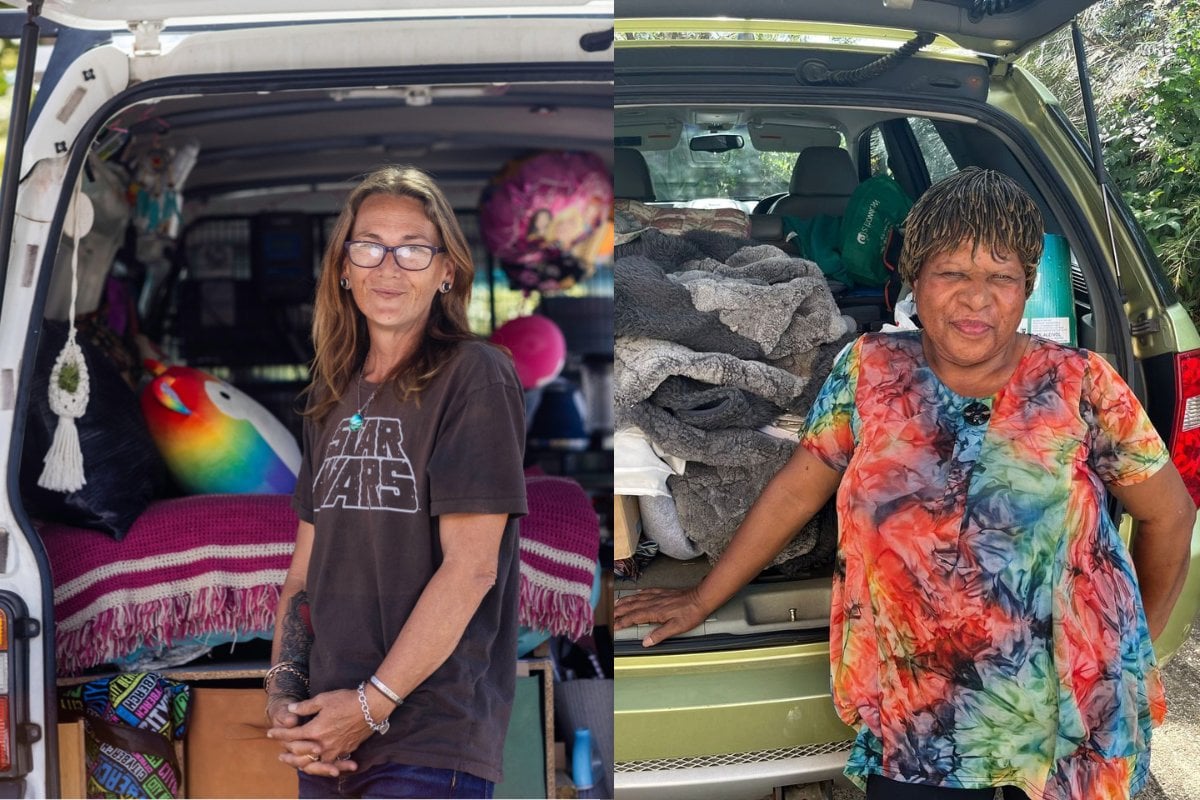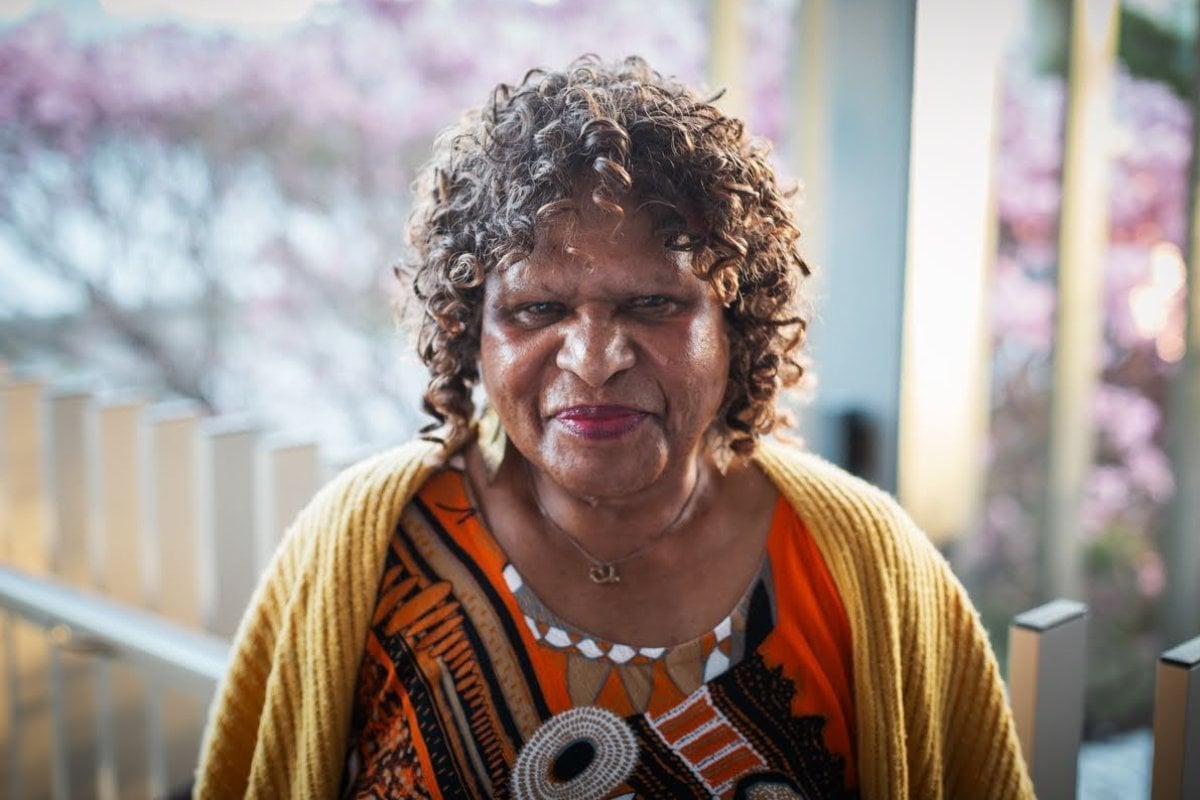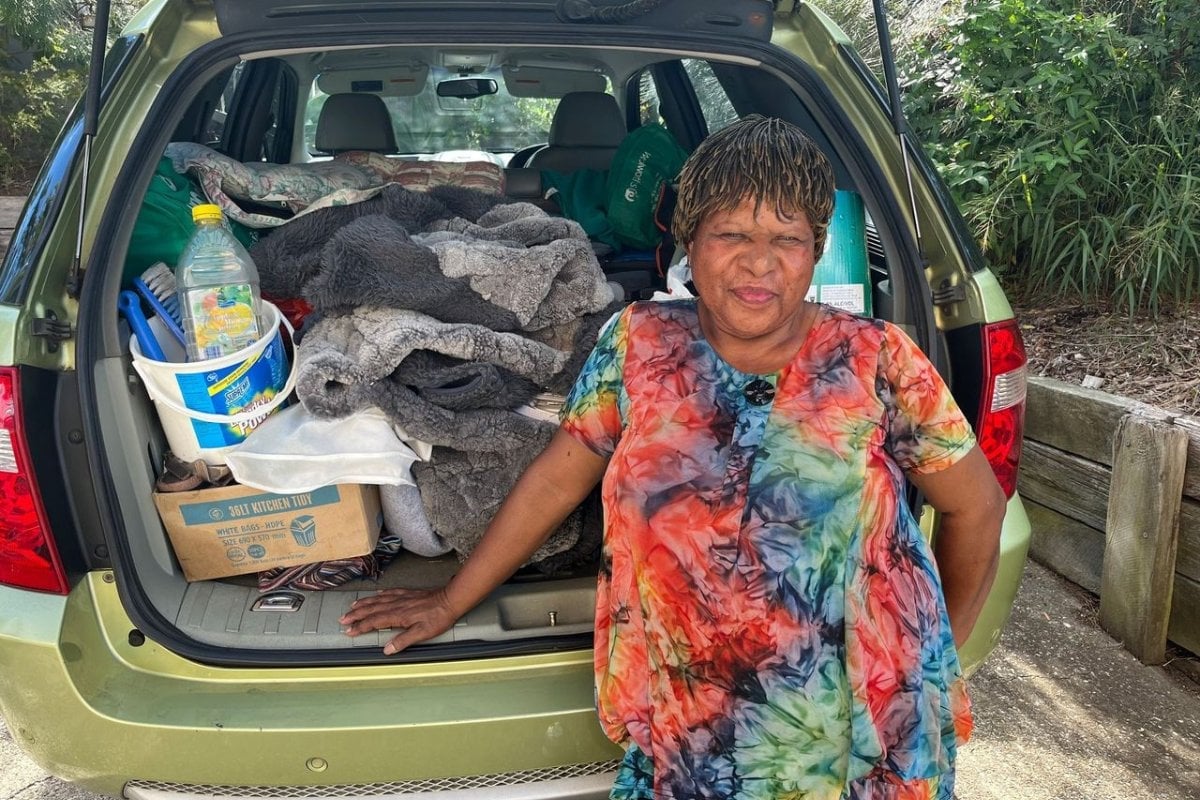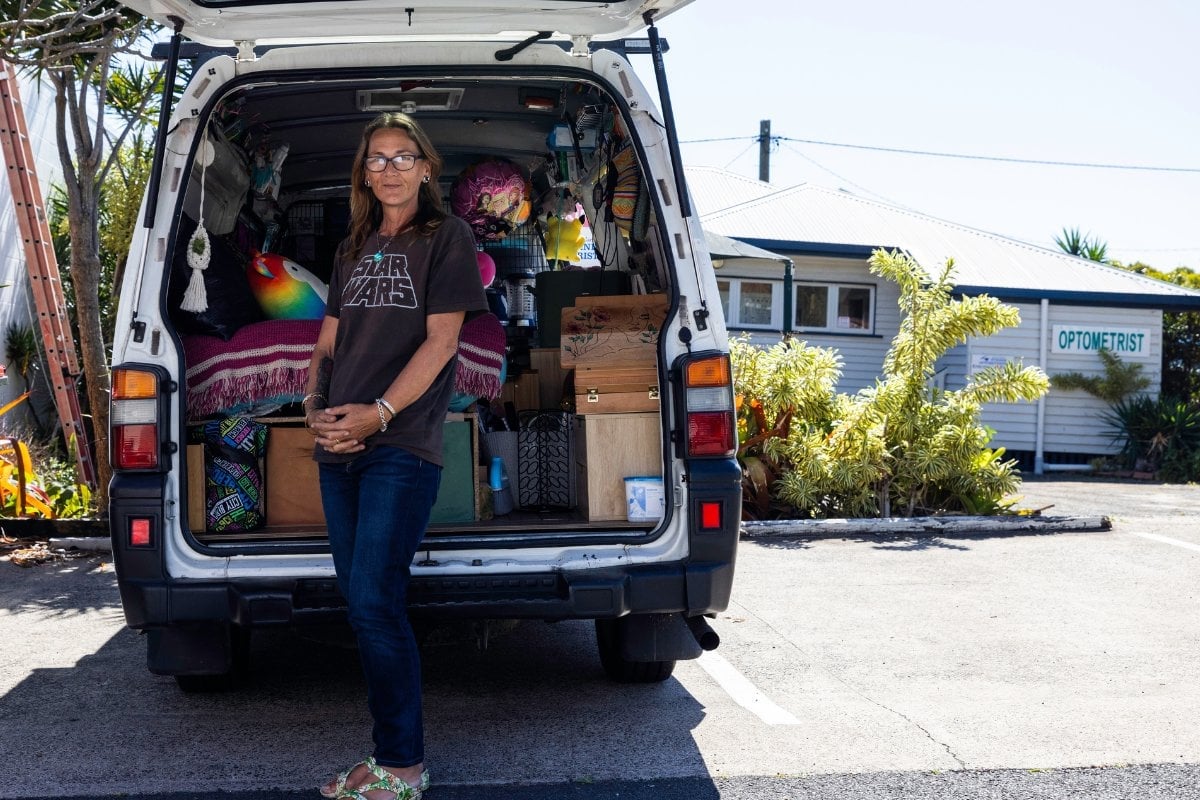
Content warning: This post touches on the topic of suicidal ideation, and may be distressing for some readers.
The spotlight rarely shines on homelessness.
It's an issue our politicians push aside and it's an experience that is seldom given the attention it deserves.
On any given night in Australia, more than 122,000 people experience homelessness. Women make up part of this demographic, with middle-aged and older women particularly at risk.
Oftentimes the women who don't have a safe space or home of their own are forced into extremely difficult situations. 67-year-old Betty can attest to this.
"I was never comfortable in my car. I didn't feel secure, like you do when you have a home. It's not a good thing to do, I wouldn't wish it on anyone. But when you have no other option, you've just got to do it," she tells Mamamia.
Watch: Jai talks about his experience of being homeless on and off for twenty years on the streets of Sydney. Post continues below.




Top Comments